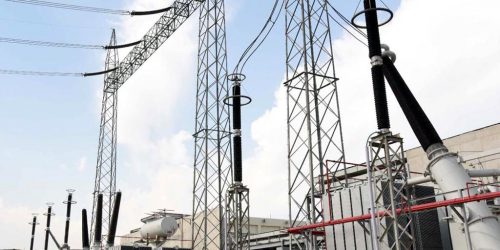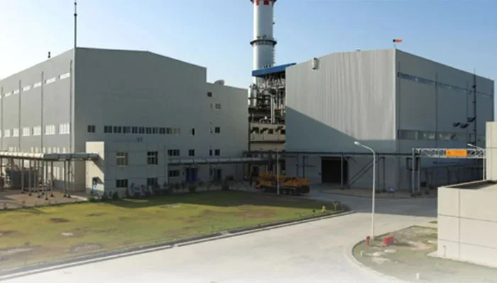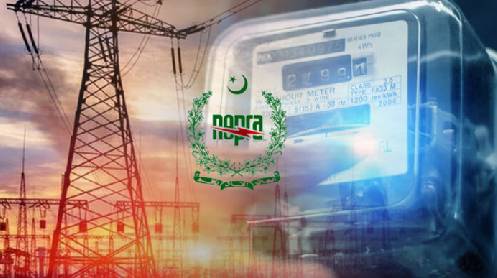ISLAMABAD: The National Energy Efficiency and Conservation Authority (Neeca) is all set to start energy audits of Captive Power Plants (CPPs) of textile sector in the light of a decision of the Cabinet Committee on Energy (CCoE).
Neeca- an arm of the Power Division has sent letters to all the CPPs, conveying them to be ready for their energy audit as the efficiency of most of the plants was below 50 per cent.
A couple of months ago, the CCoE directed the Petroleum Division to revise efficiency benchmarks of the CCPs on its own in consultation with the stakeholders as most of the plants’ efficiency is below 50 per cent.
According to the Neeca’s letter, it has been mandated for the promotion of conservation and efficient use of energy for sustainable development with all major sectors of economy including power.
The letter says, considering the declining trend of natural gas resources with no sizeable gas discoveries, the availability of power in national grid and to promote efficient use of indigenous natural gas, the Petroleum Division submitted the summary with the following proposals before the CCoE: (i) minimum efficiency benchmarks may be set for captive power units whether in single cycle or combined cycle using natural gas as a primary fuel – 45 percent minimum net efficiency for units up to 50MW and 50 percent minimum net efficiency for unit above 50MW; (ii) captive units, whether in simple cycle or combined cycle, where steam is also used in the process of industrial undertaking, may have a minimum net combined electrical and thermal efficiency of 60 percent; (iii) the Neeca may be mandated to conduct the audit of captive power plants by hiring an engineering consulting firm(s) for audit. The audited company will pay the charges for the said audit; (iv) the captive power units not meeting the above criteria will be given 90 days’ time to modernise /upgrade their units and in case of failure to comply; the gas tariff for such units will be revised to that of the notified RLNG tariff.
In November, 2011, the ECC approved the procedure for conducting an energy audit as well as the penalty for not meeting the approved efficiency criteria.
Subsequently, the erstwhile Ministry of Petroleum and Natural Resources’ summary, which approved the following revised policy guidelines for energy efficiency audit of captive power plants: (i) gas engine generator set/gas turbine based Captive Power Plants (CPP) (500 KW and above) with cogeneration system with Jacket Water or Exhaust Flue Gases Heat Recovery utilization in their process should have efficiency of around 50 percent; (ii) gas engine generator set/gas turbine based CPPs (500 KW and above) with cogeneration system with Jacket Water and Exhaust Flue Gases Heat Recovery utilization in their process should have efficiency of around 60 percent; (iii) Only spinning units of the textile industry would be exempted from Waste Heat Recovery (Cogeneration system) but their Gas Engine Generator sets should have an efficiency-of around 34 percent; however, all other units, except spinning industries, should have an efficiency of around 38 percent and; (iv) Combined Cycle Power Plant with a capacity of 50MW and above should have efficiency of around 42 percent.
In the recent case of M/s Bulleh Shah Packaging versus Federation and others, the Supreme Court of Pakistan directed that the Federal Government and the OGRA may review the tariff structure and clearly provide the basis of categorisation, factoring in technologies such as cogeneration and distinguish between an industrial process and an independent business unit eg captive power plant that also sells electricity. Consequently, a suitable definition of captive plants /unit has been provided/notified vide OGRA’s gas sale price notification of August 9, 2019 as follows: “Captive Power Plant/Unit” means an industrial undertaking/unit carrying out the activity of power production (with or without co-generation) for self-consumption and/or sale of surplus power to the distribution company or bulk-power consumer.”
The Petroleum Division pointed out that the current notified natural gas tariff for the industry and the captive power plants with effect from July 01, 2019 is Rs1,021 per MMBTU, whereas gas tariff for export-oriented industry and captive power units is Rs736.
The tariff for export-oriented industry in Punjab has been fixed at $6.5 per MMBTU, whereas the amount exceeding the tariff is provided through a budgeted subsidy.
The sources maintained that three Government Power Plants (GPPs) with efficiency above 60 percent were being charged notified RLNG tariff, which was higher than the subsidized tariff for captive power plants having lower efficiencies than the GPPs.
During the ensuing discussion in the CCoE,, the minister for Information and Broadcasting, Syed Shibli Faraz, raised concern over the selection of the Neeca for conducting the audit of captive power plants because of its limited capacity.
He further stated that the proposed revision of efficiencies for the CPPs might generate opposition from the industrial sector as majority of those plants were functioning below 50 percent efficiency.
The CCoE discussed proposed efficiency benchmark for the CPPs threadbare and agreed to their revision.
As per the direction of the Petroleum Division communicated on July 30, 2020, the Neeca has been assigned the task of conducting the energy audits of gas audits of gas-based captive power units.
On August 15, 2020, Request for Proposal advertisement for energy audits of gas based CPPs identified by the SNGPL and the SGGCL through private engineering consulting firms was given in the newspapers.
Managing Director Neeca, Dr Sardar Mohazzam, in his letters, has requested the concerned industry to share with the Neeca the possible date and time on which the consulting firms can visit respective units for energy audits. Independent Power Producers (IPPs) are triumphant on the audit of the CPPs as according to them the investigation against them has been initiated on the proposal of a top man of All Pakistan Textile Mills Association (APTMA) at a meeting with the chief of army staff.




